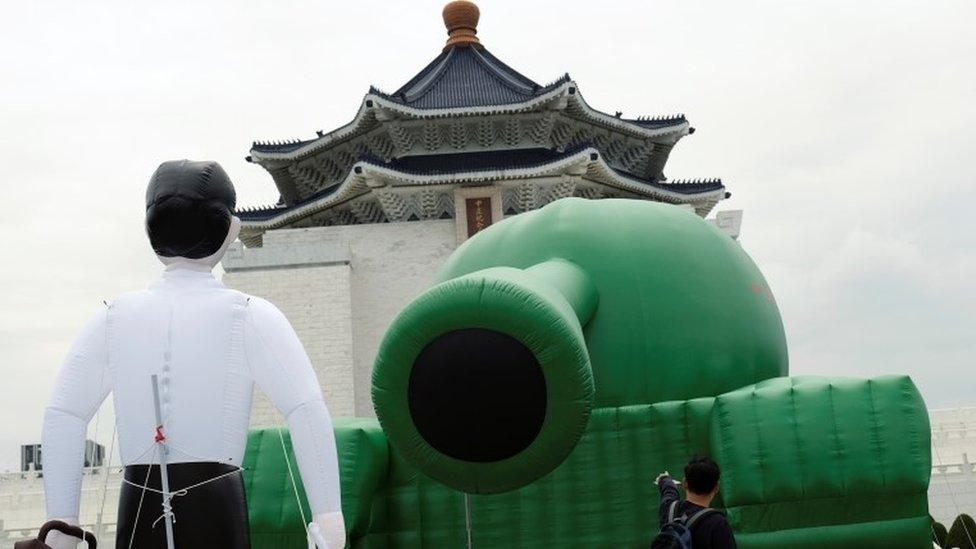Tiananmen 30th anniversary: Thousands hold huge vigil in Hong Kong
- Published
Hong Kong is one of the few places in Chinese territory where an annual remembrance vigil can be held.
Tens of thousands of people have gathered in Hong Kong to mark the 30th anniversary of the crackdown on protests in Beijing's Tiananmen Square.
Hong Kong and Macau are the only places in Chinese territory where people can commemorate the activists killed in 1989.
China has never given an official figure for how many people died, but estimates begin in the hundreds.
Organisers say 180,000 people joined a vigil in the city's Victoria Park.
But police put the number of attendees at under 40,000.
In mainland China, the authorities have banned even oblique references to the crackdown, which took place after weeks of mass protests that were tolerated by the government. The numbers gathered in and around Tiananmen Square are estimated to have reached a peak of one million people.
Hundreds of security personnel and police were monitoring the square in Beijing on Tuesday.

Refusing to forget
by Grace Tsoi, BBC World Service, Hong Kong

Hong Kong's Victoria Park is once again a sea of candlelight as far as the eye can see.
The crowd, many dressed in black, is mostly silent whilst holding up their candles in mourning. Some are crying. In between protest songs, they chant "the people will not forget".
The crowd claps and cheers when Liane Lee - who took part in the 1989 protests - shouts: "We refuse to forget. We refuse to believe the lies".
Standing watching is Teresa Chan. She has attended the commemoration every year since 1990, except once when she was ill.
"I wanted to go Beijing to be with the movement but I couldn't," she says. "I never imagined it would end the way it did, it's very hard to forget."
But there are also new faces in the crowd this year.
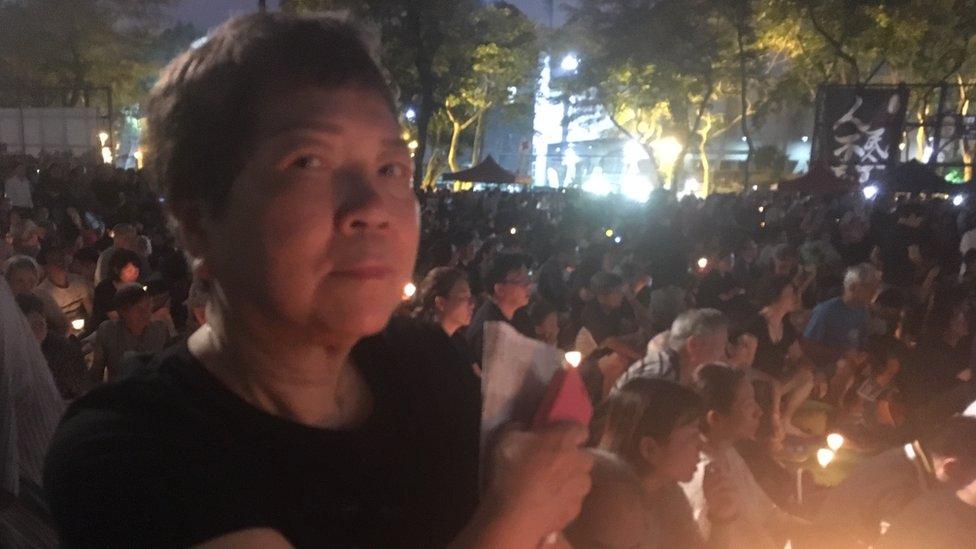
Protestor Teresa Chan has come to the protest in Hong Kong nearly every year
Ms Leung, who is in her 30s, says she decided to come for the first time because she is worried about Hong Kong's future.
"I am very angry with what the Chinese government is doing here," she says.
Amongst the remembrance flowers and candles, there are posters protesting against proposed amendments to laws concerning extraditions to mainland China. Many fear the changes will lead to the further erosion of civil liberties here in Hong Kong.
Here in Victoria Park are also some mainland Chinese residents like Mr Zeng who travelled to Hong Kong with his wife and 11-year-old daughter just to attend tonight's event.
His daughter says it's an eye-opening experience. "I am here to learn the real history about China. Now I feel like China is no better than other countries," she says.

Returning to Tiananmen Square for the first time
The vigils in Hong Kong come at a sensitive time for its leadership, with public backlash over a proposed bill that would allow fugitives captured in the city to be extradited to mainland China.
Smaller vigils are also expected 64km (40 miles) away in Macau's city centre, and on the self-governing island of Taiwan.
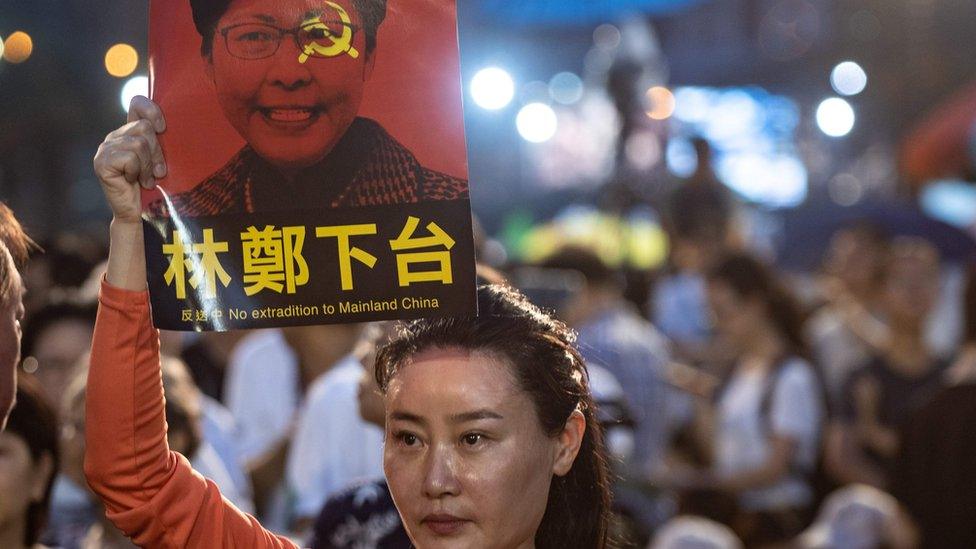
The gatherings come at a sensitive time for Hong Kong's leadership
The Tiananmen anniversary earlier prompted a war of words between Washington and Beijing. US Secretary of State Mike Pompeo criticised China's human rights record and called on it to finally reveal how many people died in the crackdown.
In response, a Chinese embassy spokesman in Washington DC said his comments were "an affront to the Chinese people".
On Tuesday, China issued separate travel warnings to its citizens travelling to the US, citing police harassment and crime.
Its foreign ministry accused American law enforcement agencies of "harassing" Chinese citizens in the US through immigration checks and other methods.
What happened in 1989?
Pro-democracy protesters occupied Tiananmen Square in April 1989 and began the largest political demonstrations in communist China's history. They lasted six weeks.
On the night of 3 June tanks moved in and troops opened fire, killing and injuring many unarmed people in and around Tiananmen Square.
Afterwards the authorities claimed no-one had been shot dead in the square itself. Estimates of those killed in the crackdown range from a few hundred to several thousand.
Wang Dan one of the leaders of the Tiananmen Square protests
At the weekend, Chinese Defence Minister Wei Fenghe made a rare mention of the protests during a regional forum in Singapore.
"That incident was a political turbulence and the central government took measures to stop the turbulence, which is a correct policy," he said in response to a question.
He added that because of the action the government took, "China has enjoyed stability and development".
- Published23 December 2021
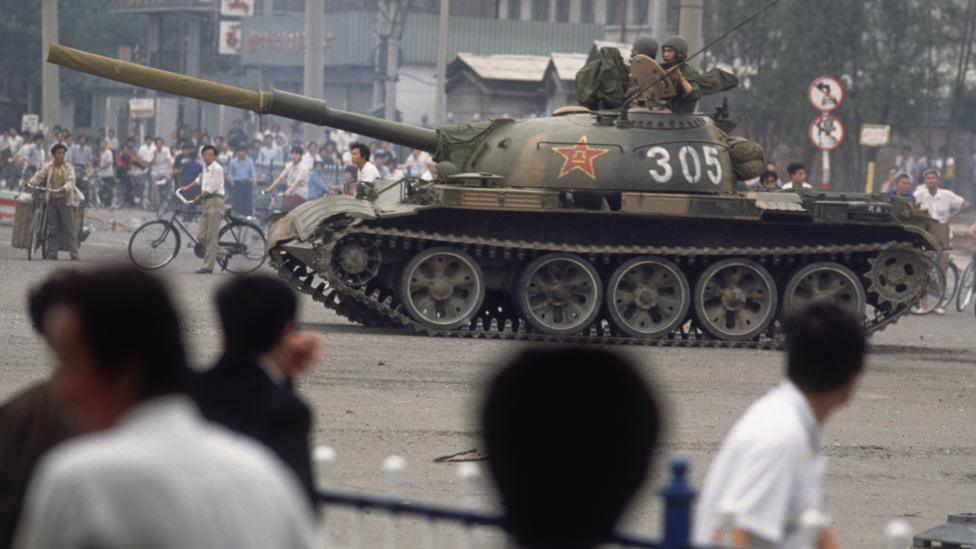
- Published4 June 2019
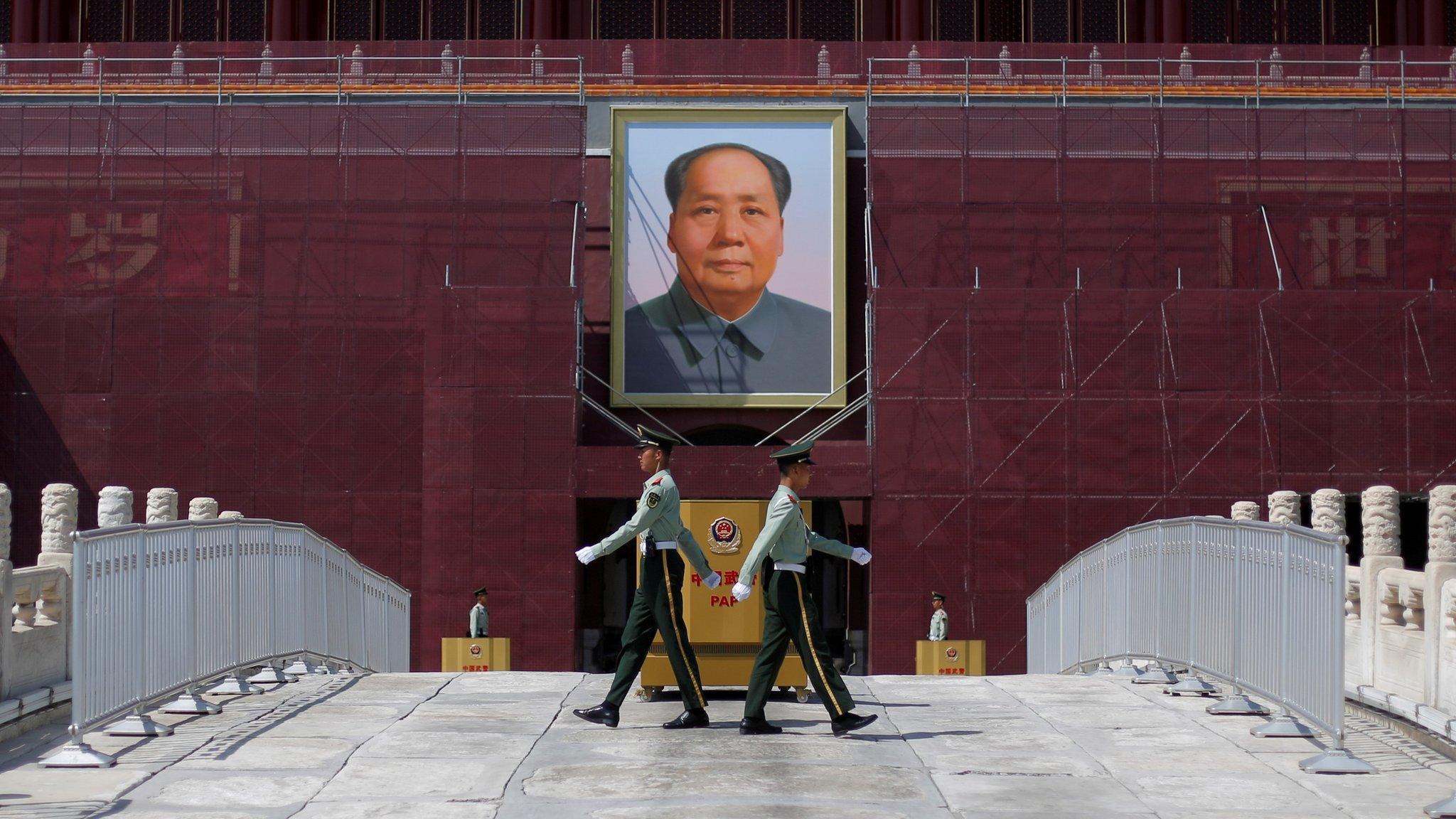
- Published2 June 2019
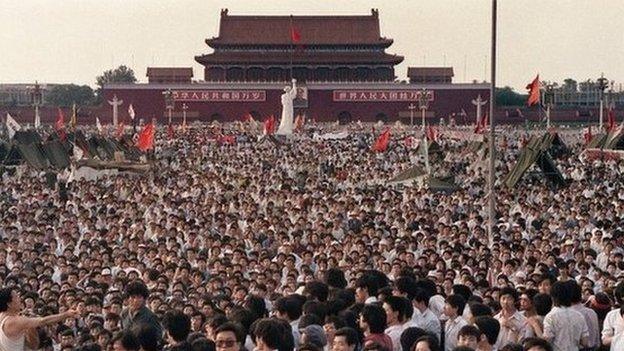
- Published22 May 2019
